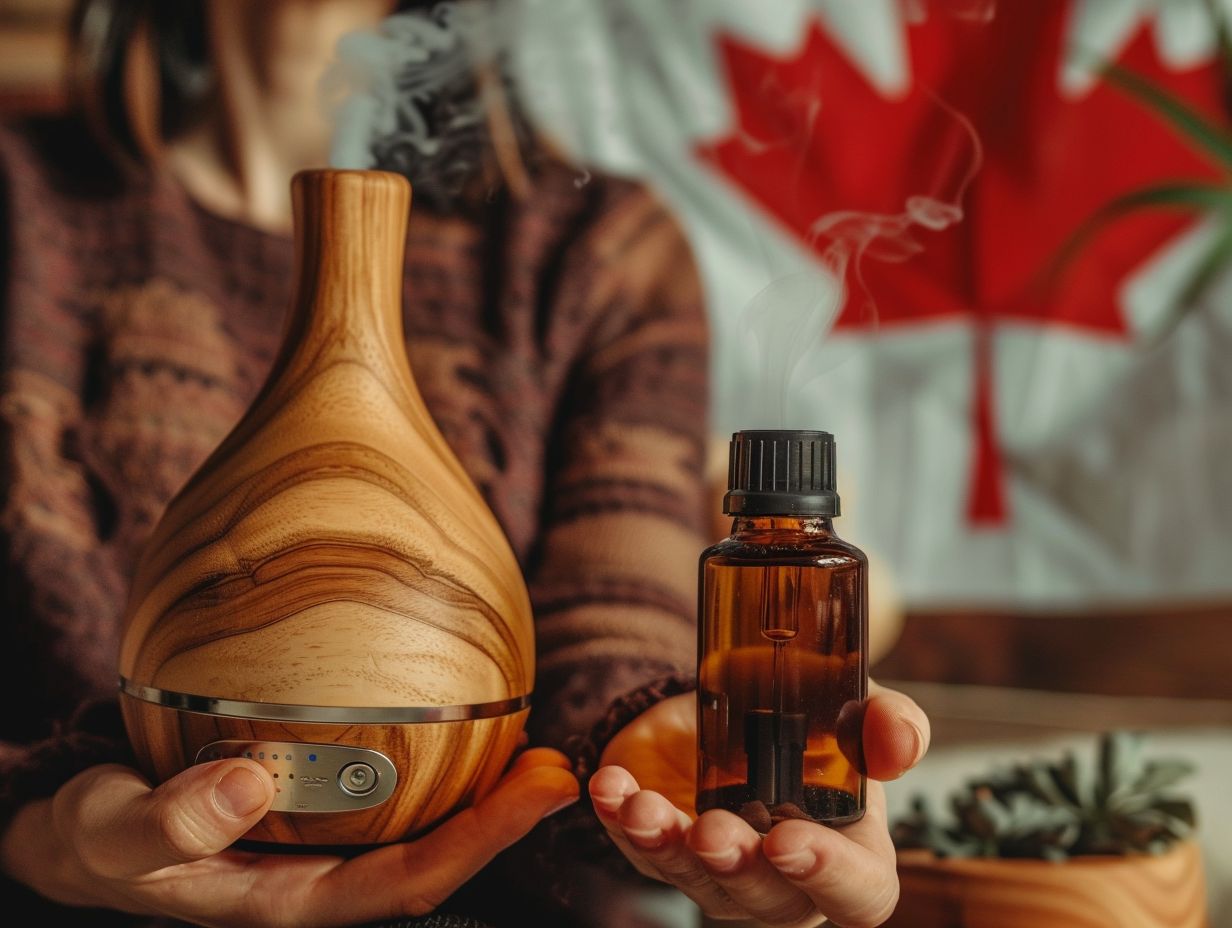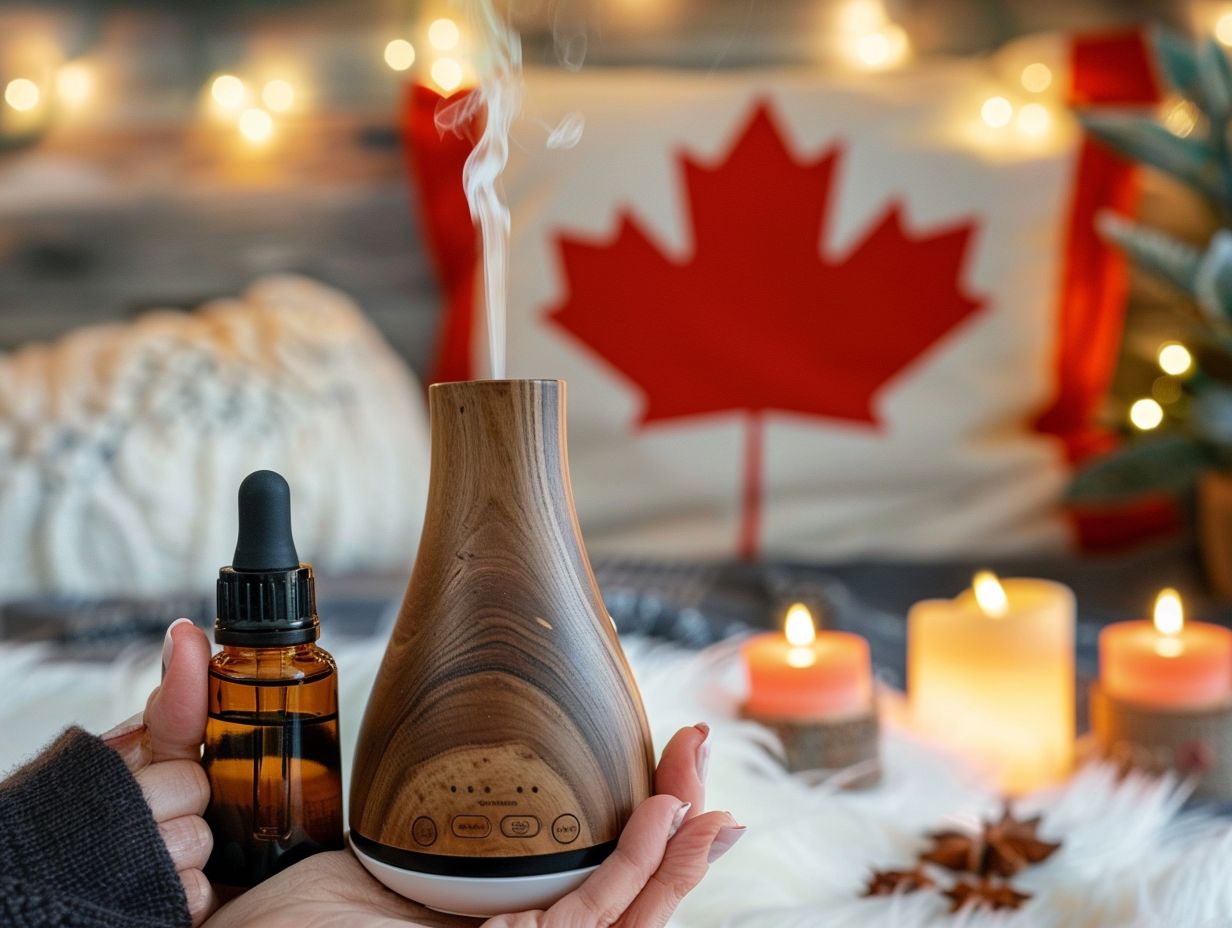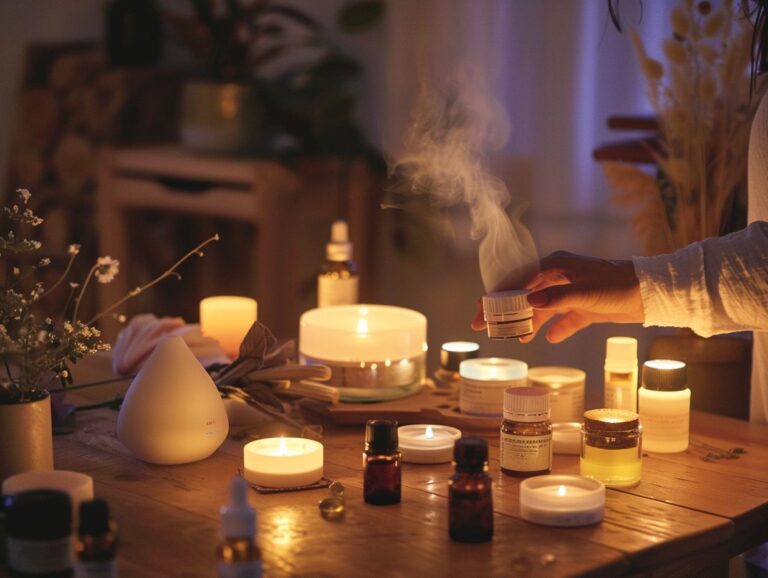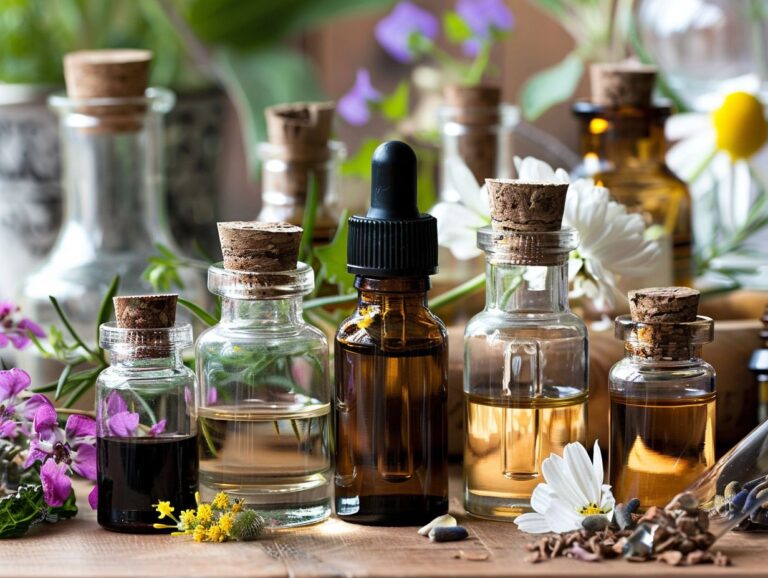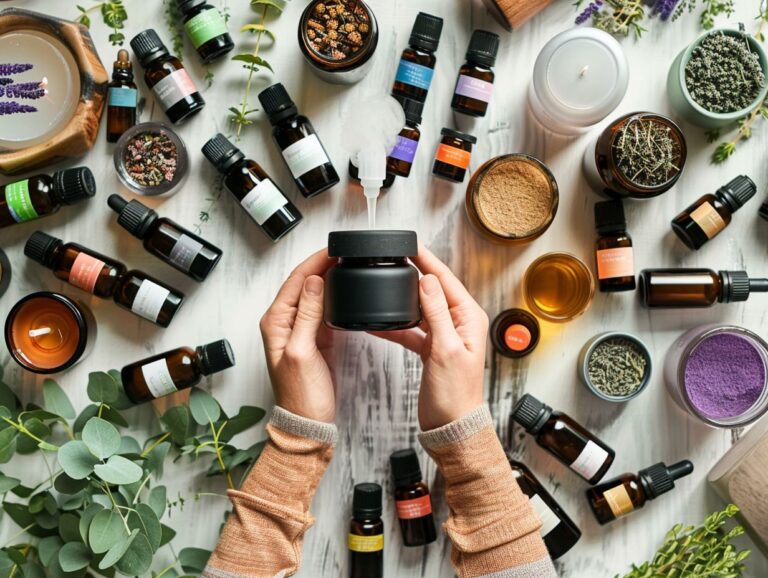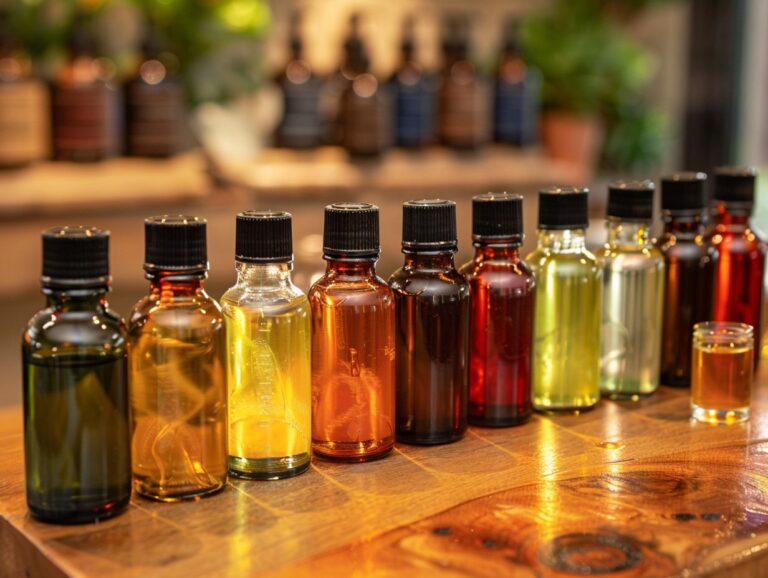Is Aromatherapy Regulated in Canada
Aromatherapy is a popular holistic healing practice that uses essential oils to promote physical and emotional well-being.
In Canada, regulations ensure that aromatherapy products and practitioners meet specific standards to ensure safety and effectiveness.
We will explore the different methods of using aromatherapy, the regulations for aromatherapy in the UK, and the benefits of using regulated products.
We will also discuss the risks of using unregulated products, how to identify warning signs, potential side effects, safety precautions, and alternative options for Canadians seeking natural remedies.
Key Takeaways:
What Is Aromatherapy?
Aromatherapy involves the use of essential oils extracted from plants to promote well-being and health. Health Canada oversees the regulations and licensing related to aromatherapy products in Canada, ensuring compliance with safety standards.
Essential oils are concentrated liquids that contain the essence of plants and are believed to have therapeutic properties. In aromatherapy, these oils are often inhaled, applied topically, or used in massage to address various health concerns such as stress relief, relaxation, and improved sleep.
Health Canada plays a crucial role in monitoring and evaluating the safety and efficacy of aromatherapy products in the Canadian market. They establish guidelines for proper labeling, packaging, and manufacturing practices to ensure consumers receive high-quality and safe products.
Health Canada requires companies producing aromatherapy products to obtain licenses and comply with strict regulations to guarantee that the products meet quality standards and do not pose any health risks to users.
How Is Aromatherapy Used?
Aromatherapy is commonly used in various forms such as diffusers, topical applications, and inhalation methods. Natural Health Products and cosmetics infused with essential oils are popular choices for aromatherapy practices.
In Natural Health Products, essential oils are often blended to create remedies targeting specific health concerns like stress relief, insomnia, or skin rejuvenation. These products, ranging from balms to bath oils, offer holistic benefits that promote overall well-being.
Regarding cosmetics, essential oils are incorporated into skincare, haircare, and body care products. These formulations not only enhance the fragrance but also provide therapeutic effects, nourishing the skin and promoting relaxation.
What Are The Different Methods Of Using Aromatherapy?
Aromatherapy can be administered through inhalation, massage, baths, or direct skin application, providing various approaches for self-care and relaxation. HealthLinkBC offers valuable resources on safe practices, while Health Products Directorate oversees related regulations.
When utilizing aromatherapy through inhalation, one can benefit from the direct entry of essential oils into the bloodstream via the respiratory system. This method is commonly practiced through inhalers, diffusers, or steam inhalation techniques, offering quick and effective results in promoting relaxation and mental clarity.
Massaging with essential oils not only aids in relaxation but also enhances blood circulation and promotes skin health. Applying diluted essential oils topically can address various skin concerns like acne, eczema, or muscle tension, making it a versatile self-care practice.
Is Aromatherapy Regulated In Canada?
Aromatherapy is regulated in Canada to ensure the safety and quality of products available to the Canadian market. Various regulatory pathways exist to govern essential oil sellers and protect Canadian consumers.
In Canada, the regulation of aromatherapy products falls under Health Canada’s purview, ensuring that manufacturers and sellers comply with stringent standards. Essential oils are classified as natural health products, requiring specific approvals and registrations. Companies must adhere to Good Manufacturing Practices (GMP) to maintain quality control and safety protocols. Compliance with labeling requirements, including proper ingredient listings and health claims, is crucial to provide transparent information to consumers. It is essential for essential oil sellers to conduct thorough testing and adhere to safety standards to ensure the well-being of users.
What Are The Regulations For Aromatherapy In Canada?
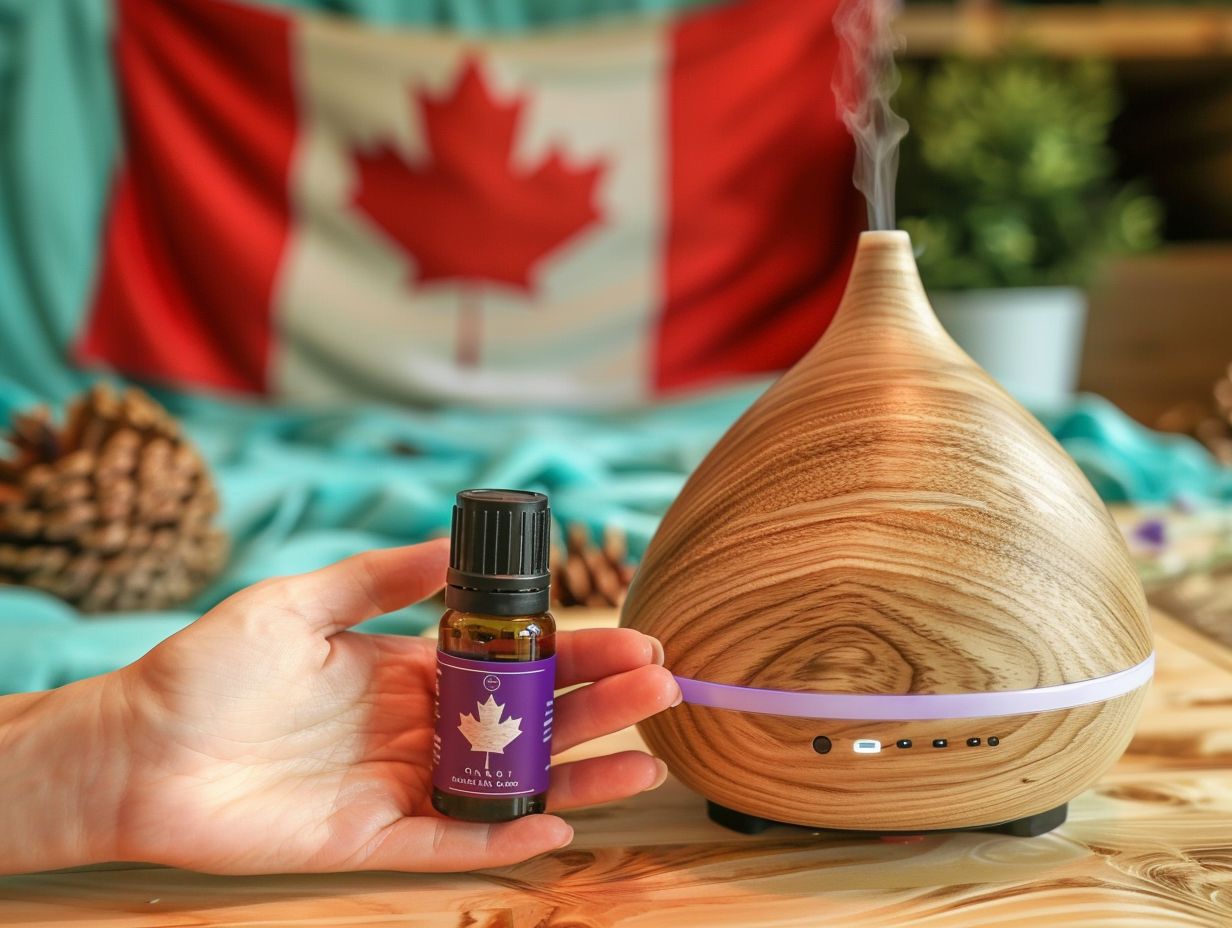
These regulations cover every aspect of aromatherapy product production, from sourcing ingredients to packaging. Health Canada sets clear standards for manufacturing facilities, ensuring they meet strict hygiene and safety requirements.
Labeling plays a crucial role, with detailed information required on ingredients, usage instructions, and any potential side effects. The regulatory pathways for introducing these products to the Canadian market involve rigorous evaluations to guarantee compliance with health and safety standards.
Strict sales protocols are also in place to monitor distribution channels and prevent unauthorized sales of unregulated products.
What Are The Requirements To Become A Registered Aromatherapist In Canada?
Individuals aspiring to become registered aromatherapists in Canada must meet specific training and certification requirements outlined by Health Canada. Compliance with regulatory pathways and standards is essential for professional practice.
Health Canada sets strict guidelines to ensure the safety and effectiveness of aromatherapy treatments. Prospective aromatherapists typically pursue formal education in aromatherapy, essential oils, and related courses to attain the necessary knowledge and skills. Certification from recognized institutions or organizations adds credibility to their practice and demonstrates proficiency in the field. Adhering to Health Canada’s regulations not only upholds professional standards but also ensures the well-being of clients. Compliance with these guidelines is crucial for building trust and establishing a reputable practice in the aromatherapy industry.
Are There Any Organizations That Regulate Aromatherapy In Canada?
The regulation and oversight of aromatherapy in Canada are carried out by organizations such as the Natural and Non-Prescription Health Products Directorate, ensuring compliance with FDA standards and guidelines.
In Canada, the Natural and Non-Prescription Health Products Directorate plays a crucial role in monitoring the safety and quality of aromatherapy products available to consumers. They work diligently to ensure that all manufacturers, distributors, and retailers comply with the stringent regulations set forth by the FDA to maintain high standards of production and distribution.
Quality control measures are implemented throughout the entire supply chain, from sourcing raw materials to packaging the final products. This meticulous process helps in guaranteeing that consumers receive authentic and pure aromatherapy products that adhere to the highest regulatory standards.
What Are The Benefits Of Using Regulated Aromatherapy Products?
Utilizing regulated aromatherapy products approved by Health Canada offers consumers the assurance of quality, safety, and efficacy. Certified essential oil sellers adhere to standards set for Natural Health Products Making Modern Health Claims.
When consumers opt for regulated aromatherapy products, they can rest assured that the products have undergone rigorous testing and meet specified guidelines to ensure their well-being. This adherence to quality standards not only guarantees the safety of the products but also enhances their efficacy, providing users with the intended benefits.
Health Canada’s approval serves as a stamp of credibility, instilling trust in consumers regarding the authenticity and purity of the essential oils they are purchasing. By choosing regulated products, individuals can prioritize their health and overall well-being with confidence.
What Are The Risks Of Using Unregulated Aromatherapy Products?
Unregulated aromatherapy products present potential risks to consumers, including skin irritation, allergic reactions, and adverse health effects. The Canadian cosmetic framework and CFA guidelines help identify safe products, while HealthLinkBC offers resources on recognizing reputable brands.
Regarding purchasing aromatherapy products, vigilance is key.
Product safety should be the utmost priority, as using unregulated items can lead to unforeseen consequences. Skin irritation may seem like a minor issue, but for individuals with sensitive skin, it can result in persistent discomfort. Allergic reactions are also a significant concern, with certain essential oils triggering adverse responses in susceptible individuals. Beyond skin reactions, the potential health hazards of using unregulated products without proper supervision or labeling can be severe and long-lasting.
How Can Consumers Ensure They Are Using Safe And Regulated Aromatherapy Products?
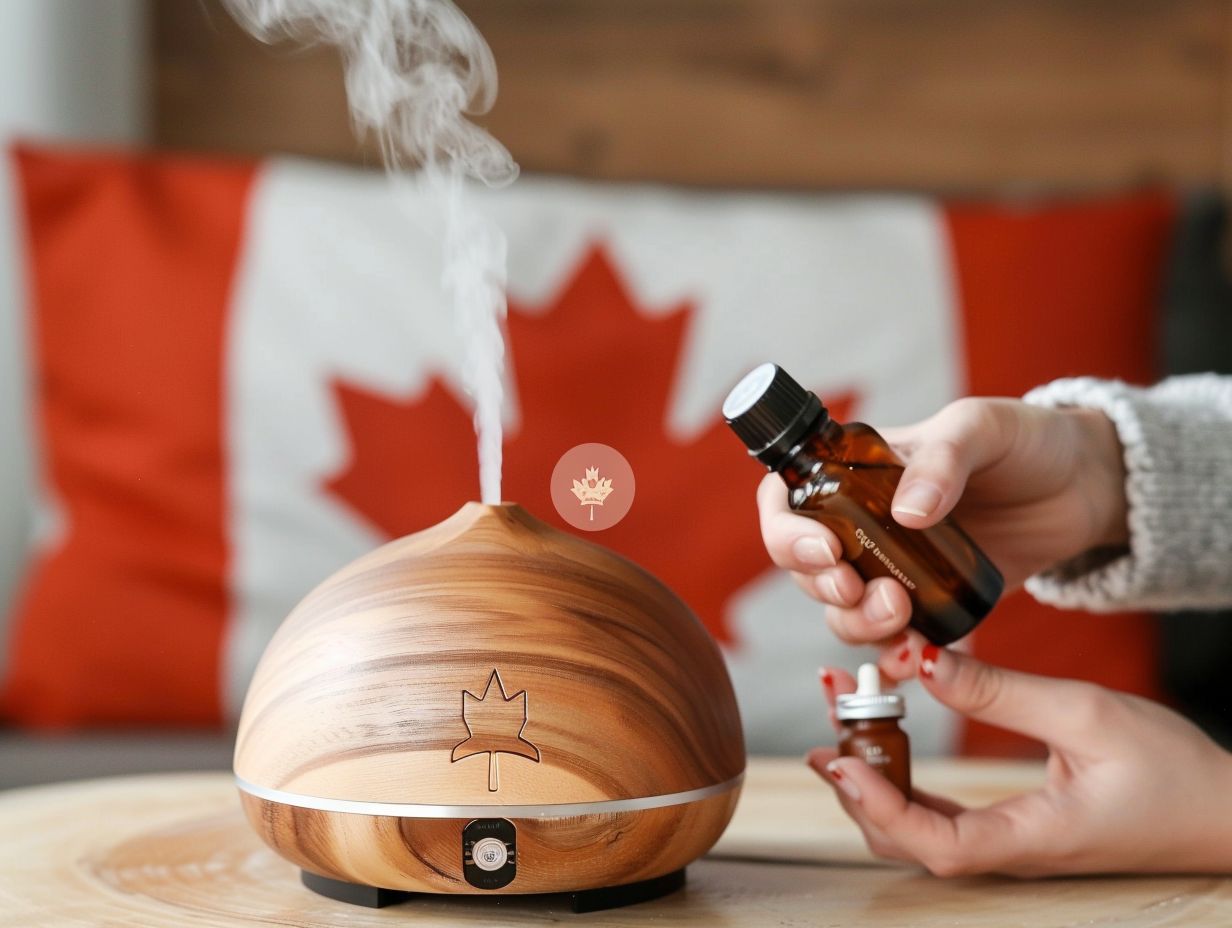
When selecting these aromatherapy products, it is crucial to look for sellers and brands that adhere to stringent regulations and quality standards. Be wary of products claiming unrealistic benefits or those lacking proper labeling and ingredient transparency. To ensure that the oils are pure and authentic, consider opting for sellers who provide batch-specific testing and certifications.
Seeking out sellers recognized by reputable organizations or industry associations can also enhance consumer confidence in the products. By doing so, consumers can feel assured that they are investing in safe and regulated aromatherapy products that prioritize their well-being.
What Are The Warning Signs Of Unregulated Aromatherapy Products?
Consumers should be vigilant for warning signs of unregulated aromatherapy products, including unclear labeling, exaggerated health claims, and suspiciously low prices. Protecting consumers from substandard products is paramount for consumer safety and satisfaction.
One key indicator to watch for is vague or misleading labels on aromatherapy products. Legitimate products will typically clearly state the ingredients, purity levels, and usage instructions. Additionally, genuine health claims should be backed by scientific evidence rather than extravagant promises.
Another red flag is unreasonably low pricing, as high-quality essential oils require thoughtful cultivation, extraction, and testing processes, making them inherently more costly. Unusually low prices may indicate subpar ingredients or production methods.
What Are The Potential Side Effects Of Aromatherapy?
While aromatherapy offers numerous benefits, it may also lead to side effects such as skin irritation, allergic reactions, and respiratory issues. Understanding the potential risks associated with natural health products and Non-prescription drugs is crucial for safe usage.
Common side effects of aromatherapy can vary from mild skin irritation to more severe allergic reactions in some individuals. It is important to note that essential oils, commonly used in aromatherapy, are highly concentrated substances that can cause sensitivities or allergic responses in certain individuals.
Inhaling strong fragrances through aromatherapy diffusers or direct application of essential oils on the skin may trigger respiratory issues, especially in people with pre-existing respiratory conditions like asthma.
Some essential oils may interact with medications or existing health conditions, emphasizing the need for caution when using natural health products in conjunction with other treatments.
What Are The Safety Precautions To Take When Using Aromatherapy?
Adhering to safety precautions when practicing aromatherapy is essential for avoiding adverse effects and promoting well-being. Organizations like the FDA, Quality Smart Solutions, and the American Herbal Products Association offer guidelines on safe practices and product usage.
One of the key safety measures recommended by these regulatory bodies is to always dilute essential oils before applying them to the skin, as their concentrated forms can cause irritation or allergic reactions.
It is advisable to perform a patch test on a small area of skin to check for any adverse reactions before using a new essential oil extensively.
Proper ventilation in the room where aromatherapy is practiced is crucial to prevent the inhalation of excessive amounts of essential oils, which can lead to respiratory issues.
What Are The Alternatives To Aromatherapy In Canada?
Along with aromatherapy, Canadians have access to alternative wellness practices such as herbal medicine, acupuncture, and traditional healing modalities. Health Products approved by the FDA offer diverse options for holistic health and well-being.
Herbal medicine, rooted in ancient traditions, harnesses the power of plants to promote healing and balance within the body. Acupuncture, a key component of traditional Chinese medicine, focuses on restoring the flow of energy to enhance overall well-being. These complementary practices offer individuals a holistic approach to health, addressing physical, mental, and emotional aspects.
Aromatherapists utilize the therapeutic properties of essential oils to support relaxation, manage stress, and improve mood. Canadians turning to these diverse wellness modalities seek natural alternatives to conventional medicine, finding comfort in practices that prioritize mind-body connection and overall wellness.
Frequently Asked Questions
Is Aromatherapy regulated in Canada?
No, currently there is no official regulation for Aromatherapy in Canada.
What does it mean for Aromatherapy to be unregulated in Canada?
It means that there are no government standards or requirements for Aromatherapists or Aromatherapy products in Canada.
Are there any organizations in Canada that oversee Aromatherapy?
Yes, there are several non-governmental organizations that provide certification and training for Aromatherapists in Canada, such as the Canadian Federation of Aromatherapists (CFA).
Are there any safety concerns with unregulated Aromatherapy in Canada?
Yes, without official regulation, there is a risk of unsafe practices and unverified claims being made by individuals or companies offering Aromatherapy services or products.
Is there a difference between Aromatherapy regulation in Canada and other countries?
Yes, regulations for Aromatherapy can vary between countries, with some having government oversight and others relying on professional organizations for regulation.
What can I do to ensure safe and effective Aromatherapy in Canada?
It is important to do your research and choose a certified Aromatherapist or a reputable company that follows safe and ethical practices. You can also look for Aromatherapy products that have been certified by a trusted organization.

